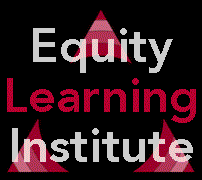 |
|
| an EdChange project by Paul C. Gorski |
|



 |
Sharing Stories: Prejudice Activity
Objectives: (1) Help individuals explore how they first became concious of prejudice and discrimination and the feelings associated with this consciousness. (2) Make participants aware that everyone has experienced prejudice and discrimination and that it comes in a variety of forms (not just racial). (3) Help participants understand the different between individual experiences of bias and systemic oppression. Activity Description: Facilitators should divide the class into small groups of no larger than six members. Participants are given the opportunity to relate four stories: (1) a time they experienced prejudice or discrimination; Share observations in the large group. Although a lot of various experiences will be shared, be sure to take advantage of the last two prompts. What is it that leads us to act or choose not to act? Facilitator Notes: (1) Participants often are reluctant to volunteer to begin this activity, particularly when required to tell a story about how they have discriminated against somebody else. A good strategy is to tell your own story first. This will help with the trust factor as well. (2) Make the point that we share stories about when we have discriminated against somebody else, not to feel guilty, but to better understand why and acknowledge our participation in oppression. (3) Be sure to differentiate for participants the experience of being discriminated against once in a specific context (I was the only white person in the club...), and the experience of being discriminated against consistently, every day. This can help participants understand the relationship between individual racist actions and systemic racism, and even how one is a symptom of the other. [ Return to the Awareness Activities Page ] |